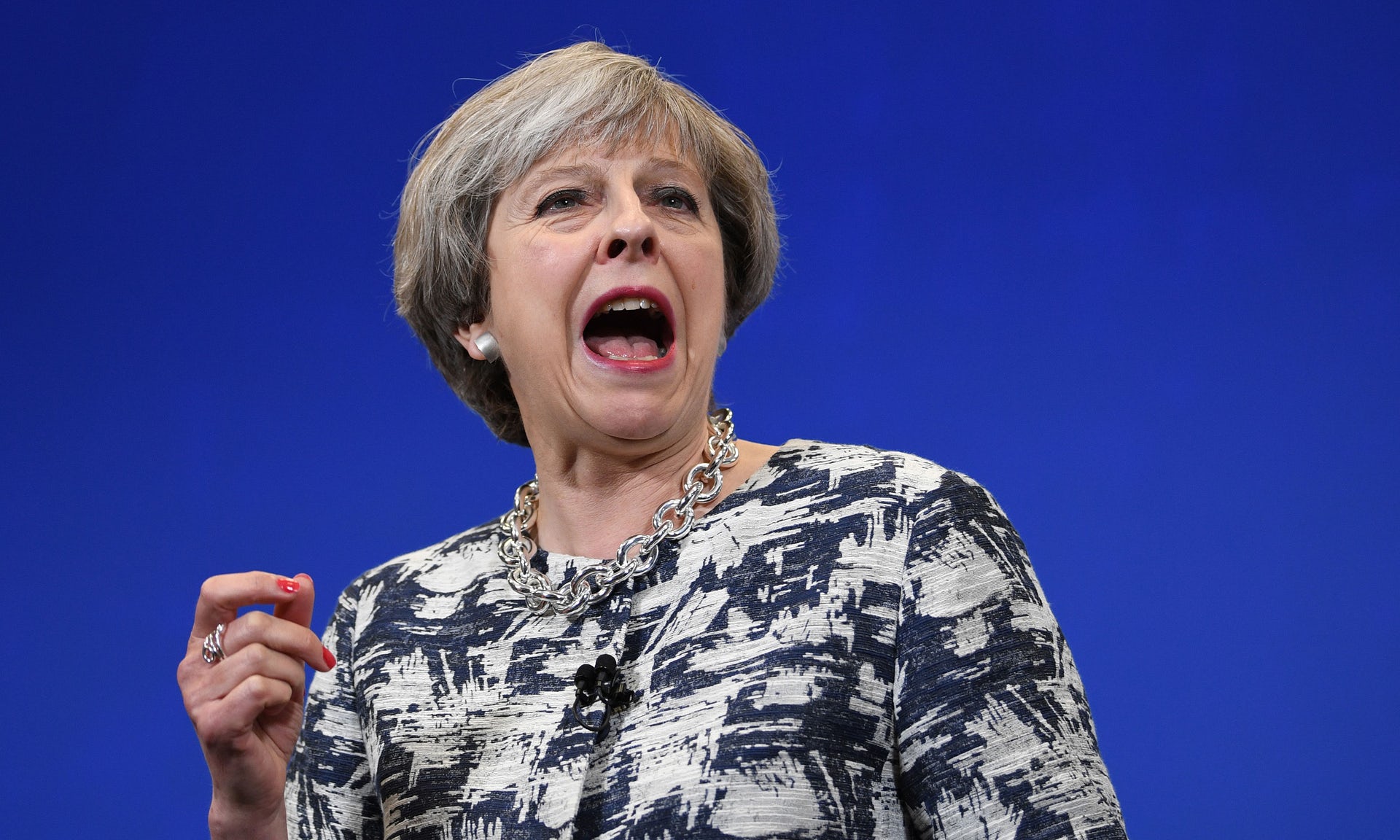This campaign has proved it: the Tories are still the nasty party
written for The Guardian, 7 June 2017
We are one day away from polling day. Theresa May called this snap election to capitalise on the lead of 24-point that some polls gave her, and crush Jeremy Corbyn’s Labour party. Now, that lead has declined to the point where one poll even predicts a hung parliament. Why?
One answer is simply that the polls are wrong. Pollsters have hardly had a good track record in the last couple of years: Brexit, Donald Trump and the 2015 general election all took many of us by surprise. This week’s YouGov model, predicting that the Tories will fall 22 seats short of a majority, is an extreme outlier – most polls are more favourable to the Conservatives, with ComRes still giving May a 12-point lead. But however you cherry-pick, the polls show May’s support declining week after week. Ipsos Mori’s poll on 2 June showed the Tory lead at five points, down from 15 a fortnight previously. Even ComRes, ever buoyant on the overall lead, shows May’s own personal ratings slipping into negative figures, for the first time. How did it get so bad?
If you pull on your boots and try to canvass for the Conservative party, you’ll find out. I’ve knocked on doors in leafy rural safe seats, genteel suburbia and hard-Labour London boroughs. In every seat, something uncomfortable still happens when you don a blue rosette. Tory voters admit their intentions, shyly. (“Don’t tell the neighbours you put me down as a yes,” said more than one London voter.) “I’m gay, so I feel bad voting Tory after section 28,” said one young man. “David Cameron pushed through the gay marriage bill,” proffered the candidate beside me. “Yeah, but they’ve still always been a bit nasty, haven’t they?”
Years ago, Theresa May warned the Tories against becoming ‘“the nasty party”; but after seven years of government, Tory toxicity still sticks to blue rosettes like tar. That is why May’s lead over Corbyn has proved so shallow. More than anything, voters have reacted badly to a Tory campaign that seemed to attack Labour’s leader 10 times for every positive policy it promoted. Corbyn is still likely to lose this election; he is still a deeply flawed candidate. But conservatism needs to build a much longer-term movement of positive enthusiasm if it is to withstand the next competent Labour leader.
Consider the hustings I attended this Sunday night at the Muswell Hill synagogue, in the north London constituency of Hornsey and Wood Green. (I was shadowing the Women’s Equality party activist Nimco Ali, an inspirational campaigner against gendered violence.) This should have been an uncomfortable gig for Catherine West, the Labour incumbent, the room bristling with concern about the antisemitism of Corbyn’s Labour party. Instead, it was the Conservatives’ representative who blew it. Standing in for their candidate, Emma Lane, was their 2005 candidate, Peter Forrest, who appeared to be some kind of Daily Mail bot. Asked about social care, housing, higher education, our man had only one answer: Jeremy Corbyn is a dangerous Marxist and must be stopped.
Many mainstream voters will agree with that claim. I certainly do. Corbyn’s long-term association with the most recalcitrant members of the IRA bore no resemblance to a freelance peace process; his claim on Andrew Neil’s BBC interview never to have knowingly met IRA members is questionable. And that’s before you start on the rally in which terror-linked al-Muhajiroun also participated, and doubts over his willingness to authorise the kind of shoot-to-kill orders that contained the London Bridge attacks.
But listening to an Ikea-issue Tory recite the same charges against Corbyn, I longed to hear a positive Tory policy. Read the Tory manifesto, and you’ll see real commitments on mental health funding and rehabilitation of prisons, both hardly mentioned in this campaign. Yet rather than celebrate Tory achievements and promises, the campaign run by the strategist Lynton Crosby has pushed out the old attack lines in every friendly newspaper. We all know how that worked out for his last client, Zac Goldsmith.
This isn’t solely May’s fault. Sexual stereotypes run deep; the public rarely warms to authoritative women. (See Hillary Clinton’s “likability problem”.) Both Corbyn’s partisan opponents and sceptical journalists have struggled to express their concerns to the public without seeming deranged by the pitch of their alarm (reacting to Donald Trump was a similar case). Some candidates’ histories are so implausible, their leadership so potentially disastrous, the electorate are reluctant to believe a party’s selection process could have gone so drastically wrong.
Yet even with a divisive leader, left-leaning voters will always look for a way to avoid voting Conservative. Many told me that they were alarmed by the prospect of Corbyn as prime minister, but they hadn’t heard a single Tory policy that seemed much better. May, one said, was “nasty about Corbyn, nasty about immigrants, nasty about Europe”.
Nasty, still. Nasty. Negativity breeds negativity: spend an election campaign attacking another leader and voters will respond in kind. The Tories can probably still power through Thursday on an empty tank. But the bitter taste they leave in voters’ mouths will hang around for several cycles to come.





